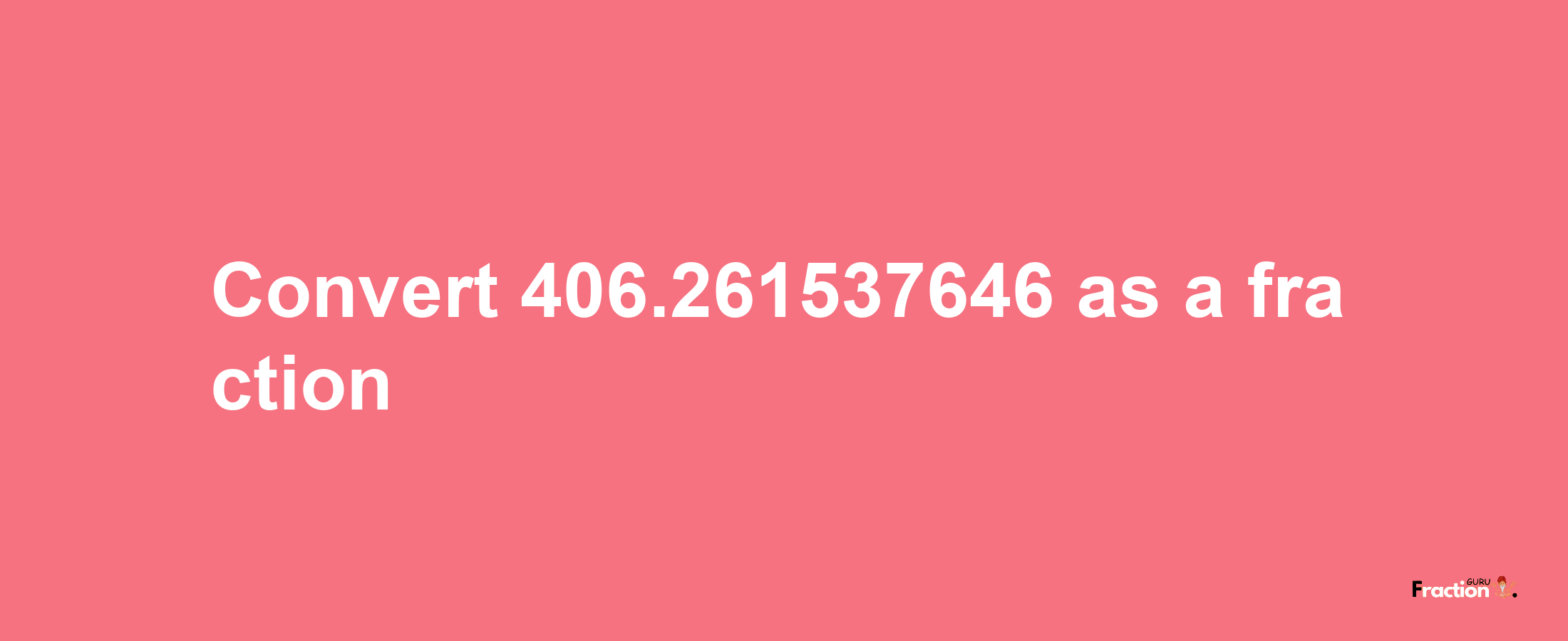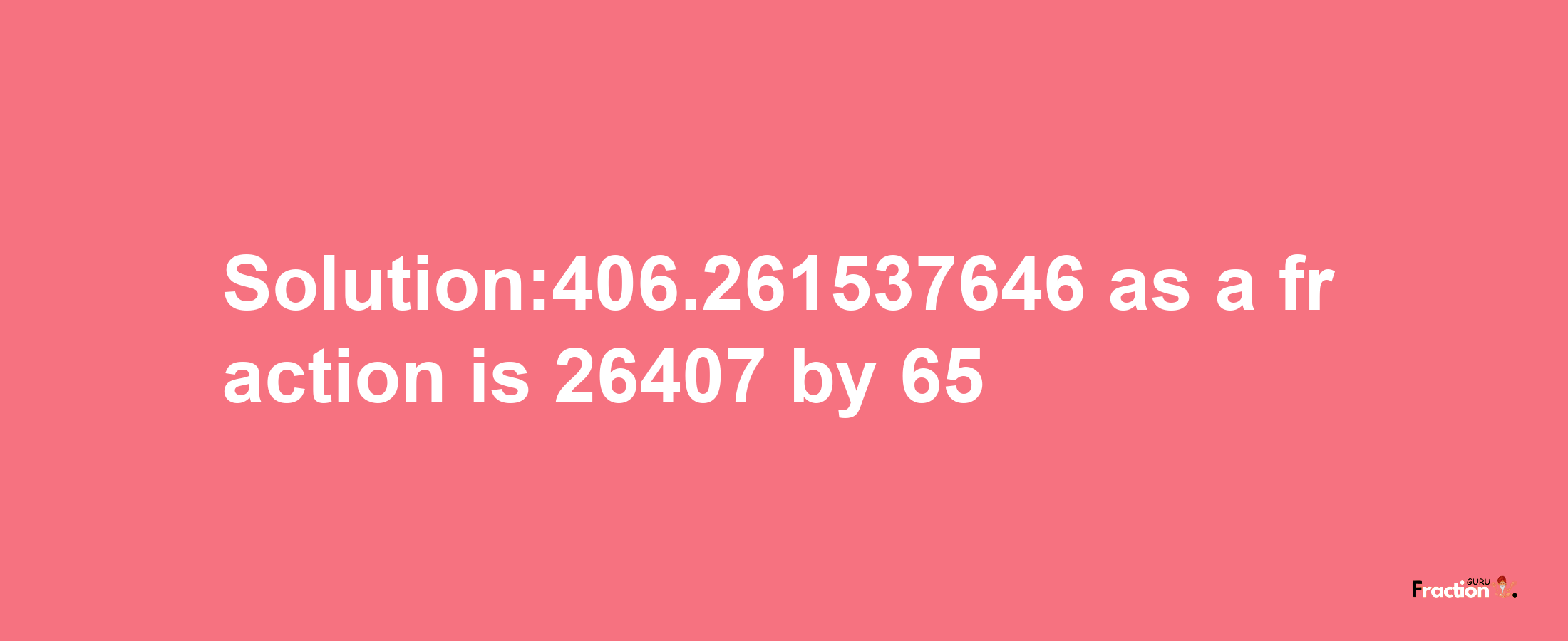Step 1:
The first step to converting 406.261537646 to a fraction is to re-write 406.261537646 in the form p/q where p and q are both positive integers. To start with, 406.261537646 can be written as simply 406.261537646/1 to technically be written as a fraction.
Step 2:
Next, we will count the number of fractional digits after the decimal point in 406.261537646, which in this case is 9. For however many digits after the decimal point there are, we will multiply the numerator and denominator of 406.261537646/1 each by 10 to the power of that many digits. So, in this case, we will multiply the numerator and denominator of 406.261537646/1 each by 1000000000:
Step 3:
Now the last step is to simplify the fraction (if possible) by finding similar factors and cancelling them out, which leads to the following answer for 406.261537646 as a fraction:
26407/65 / 1


